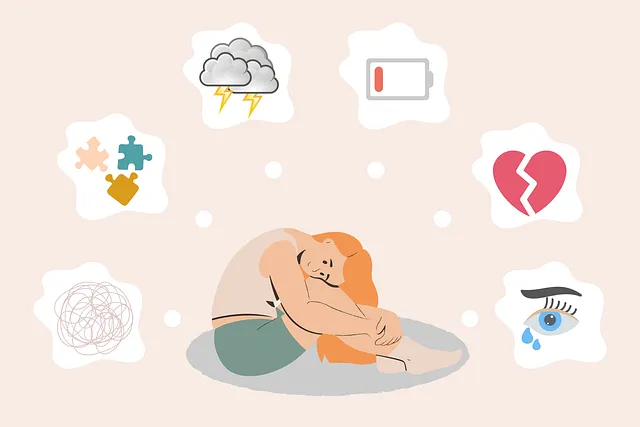“In times of emotional distress, having access to immediate mental health support can be a lifesaver. This article explores an essential resource: the Castle Rock Kaiser Permanente Mental Health Line, a dedicated hotline offering crisis intervention and counseling services. We’ll guide you through understanding this service, recognizing when to reach out, and what to expect during a call. Additionally, we’ll shed light on confidentiality policies and provide a comprehensive overview of local support networks, empowering individuals to navigate mental health crises effectively.”
- Understanding Castle Rock Kaiser Permanente Mental Health Line
- When to Reach Out for Crisis Support
- What to Expect During a Call for Mental Health Assistance
- Confidentiality and Privacy Policies for Emergency Lines
- Additional Resources and Local Support Networks
Understanding Castle Rock Kaiser Permanente Mental Health Line

The Castle Rock Kaiser Permanente Mental Health Line stands as a beacon of hope and support for individuals grappling with mental illness in the region. This dedicated hotline offers a confidential, non-judgmental space where people can connect with trained professionals who are equipped to provide immediate assistance. By dialling the Castle Rock Kaiser Permanente mental health phone number, callers gain access to a range of services tailored to meet their unique needs, be it crisis intervention, counselling, or information on various mental health conditions.
The line reflects the growing recognition that mental health awareness and stigma reduction efforts are paramount in fostering healthier communities. It embodies the mind over matter principles, emphasizing the transformative power of reaching out for help. Through its proactive approach, Kaiser Permanente’s initiative ensures individuals don’t face their challenges alone, promoting a culture where seeking support is normalized and viewed as an essential step towards recovery.
When to Reach Out for Crisis Support

What to Expect During a Call for Mental Health Assistance

When reaching out to a mental health crisis hotline, such as the Castle Rock Kaiser Permanente mental health phone number, individuals can expect a prompt and compassionate response. Trained professionals are prepared to handle a range of concerns, from immediate crises to long-term support needs. The call may begin with an initial assessment to understand the nature of the distress, including any specific symptoms or triggers. This helps in tailoring the support to the individual’s unique situation.
The conversation is often non-judgmental and confidential, fostering a safe space for individuals to share their experiences. The hotline staff can offer guidance on various resources, including local support groups, therapy options, and self-help strategies. They may also provide immediate coping mechanisms for managing stress, anxiety, or other mental health challenges. Cultural sensitivity in mental healthcare practice is increasingly emphasized, ensuring that diverse backgrounds and needs are respected and addressed during these interactions. Self-esteem improvement and mental wellness coaching programs development can be discussed to empower individuals with tools for long-term mental wellness management.
Confidentiality and Privacy Policies for Emergency Lines

When reaching out to a mental health crisis hotline like the Castle Rock Kaiser Permanente mental health phone number, it’s paramount to understand the guarantees around confidentiality and privacy. These services are designed with robust policies in place to ensure that any information shared during urgent conversations remains strictly confidential. The protection of personal details is a cornerstone of these hotlines’ operations, fostering an environment where individuals can openly discuss their challenges without fear of exposure.
Privacy becomes even more critical when addressing sensitive topics related to emotional healing processes and cultural sensitivity in mental healthcare practice. Hotline counselors are trained to respect the privacy of every caller while providing tailored support that considers diverse backgrounds, experiences, and perspectives. This dual focus on confidentiality and culturally responsive care ensures that individuals seeking assistance can receive it securely and effectively.
Additional Resources and Local Support Networks







